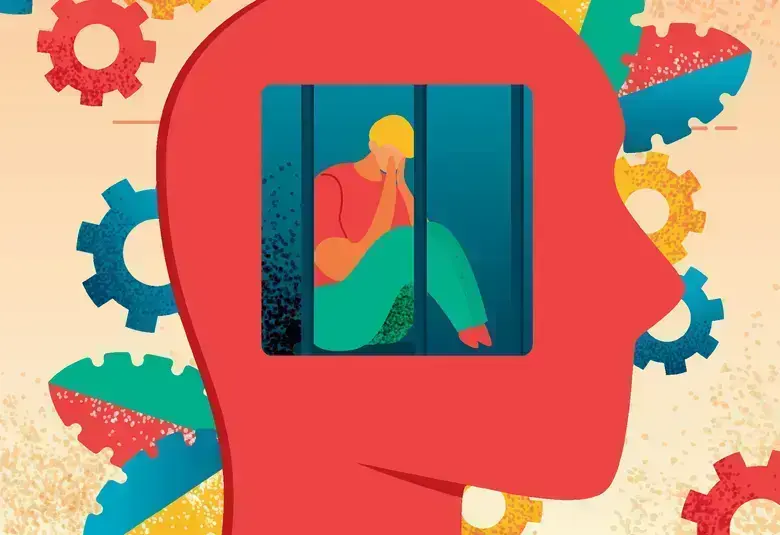Depression is a common mental health condition that affects millions of people worldwide. While many people think of depression as a primarily psychological condition, it can also manifest with physical symptoms, known as somatic symptoms. These physical symptoms can be just as distressing and debilitating as the emotional symptoms of depression, and can make it difficult for individuals to carry out daily activities. In this article, we will explore the somatic symptoms of depression, their impact on daily life, and the various treatment options available.
What are Somatic Symptoms of Depression?
Somatic symptoms of depression refer to physical symptoms that occur as a result of depression. These symptoms can take many forms and can vary in severity from person to person. Some common somatic symptoms of depression include:
- Fatigue or low energy
- Sleep disturbances, such as insomnia or hypersomnia
- Changes in appetite or weight
- Headaches or migraines
- Digestive problems, such as nausea, diarrhea, or constipation
- Muscle aches and pains
- Joint pain
- Chest pain
- Heart palpitations or racing heartbeat
- Shortness of breath or difficulty breathing
- Dizziness or lightheadedness
- Tingling or numbness in the hands or feet
These symptoms can be distressing and can interfere with daily life. They can also make it difficult for individuals to recognize that they are experiencing depression, as they may attribute their symptoms to physical illnesses rather than mental health issues.
Impact of Somatic Symptoms on Daily Life
Somatic symptoms of depression can have a significant impact on daily life. Fatigue and low energy can make it difficult to carry out daily activities, such as work or household chores. Sleep disturbances can lead to further fatigue and can affect mood and cognitive function. Changes in appetite or weight can lead to further physical health problems and can also affect self-esteem. Headaches and migraines can be debilitating, while digestive problems can be embarrassing and uncomfortable.
Muscle and joint pain can make it difficult to move and carry out physical activities, while chest pain and heart palpitations can be alarming and lead to further anxiety. Shortness of breath and dizziness can be frightening, leading to further feelings of anxiety and panic.
Overall, somatic symptoms of depression can significantly impact quality of life and make it difficult for individuals to function on a daily basis.
Treatment Options for Somatic Symptoms of Depression
There are several treatment options available for somatic symptoms of depression. These include:
- Antidepressant medication:
Depression with somatic symptoms is frequently treated with selective serotonin reuptake inhibitors (SSRIs) and serotonin-norepinephrine reuptake inhibitors (SNRIs). The somatic symptoms of depression can be effectively treated with vortioxetine, a more recent antidepressant. Serotonin, norepinephrine, and dopamine are three neurotransmitters that vortioxetine affects in higher amounts in the brain. Among other things, these neurotransmitters play a key role in controlling mood, sleep, and pain perception. The effectiveness of vortioxetine in managing somatic symptoms of depression has been examined in a number of trials. Vortioxetine was found to be more beneficial than a placebo in lowering somatic symptoms of depression, such as exhaustion, sleep difficulties, and pain, in randomized, double-blind research that lasted 10 weeks. Another study (Boulenger et al., 2014) discovered that vortioxetine was helpful in lowering both emotional and physical symptoms of depression in addition to enhancing the overall quality of life. Vortioxetine has been demonstrated to be effective in treating somatic signs of depression and to have a manageable side effect profile. Vortioxetine frequently causes headaches, nausea, and diarrhea; however, these side effects are typically moderate and pass quickly (Mahableshwarkar et al., 2015). The possibility of sexual side effects, which can be a concern with other antidepressants, has also been demonstrated to be low with vortioxetine. Some people may choose this treatment option due to its positive side effect profile, which includes a minimal risk of sexual adverse effects.
- Psychotherapy:
Psychotherapy, or talk therapy, can be helpful in treating both the emotional and physical symptoms of depression. Cognitive-behavioral therapy (CBT) is a type of psychotherapy that focuses on changing negative thought patterns and behaviors that contribute to depression. It can be particularly effective in treating somatic symptoms of depression.
- Mind-body therapies:
Mind-body therapies, such as yoga, tai chi, and meditation, can be helpful in reducing somatic symptoms of depression. These therapies focus on the connection between the mind and body and can help individuals to manage stress and improve overall well-being.
- Exercise:
Regular exercise has been shown to be effective in reducing symptoms of depression, including somatic symptoms. Exercise can help to boost mood, reduce stress, and improve sleep quality, all of which can contribute to improved mental health.
- Complementary and alternative therapies:
Complementary and alternative therapies, such as acupuncture, massage, and herbal remedies, can also be helpful in reducing somatic symptoms of depression. However, it is important to speak with a healthcare professional before trying these therapies, as some may interact with other medications or have potential side effects.
- Other Physical Therapies :
TMS is a non-invasive procedure that uses magnetic fields to stimulate nerve cells in the brain. It has been shown to be effective in treating depression with somatic symptoms, such as fatigue and pain. TMS is typically used as a second-line treatment for depression, after other treatments have been tried and found to be ineffective. Another therapy that can be helpful in managing somatic symptoms of depression is electroconvulsive therapy (ECT). ECT is a procedure that uses electrical currents to stimulate the brain. It is typically used as a last resort for severe depression that has not responded to other treatments. ECT can be effective in reducing somatic symptoms of depression, such as fatigue and pain, but it can also cause side effects, such as memory loss.
It's crucial for people with depression and somatic symptoms to practice effective self-care in addition to these therapies. This can involve obtaining enough rest, maintaining a good diet, exercising frequently, and taking part in enjoyable activities. Seeking out social support from friends, family, or support groups can also be beneficial.
It is important to remember that treating depression with somatic symptoms can take time and occasionally necessitate the use of several different therapies. In terms of medication, while antidepressants can be effective in reducing somatic symptoms of depression, they can also have side effects and may not work for everyone. It may take several weeks or even months for antidepressants to start working, and finding the right medication and dosage can be a trial-and-error process.
For individuals who are unable to take antidepressants or who do not respond to them, other medications may be used to manage somatic symptoms. For example, antipsychotic medications may be used to reduce agitation or anxiety, and sedatives may be used to help with sleep disturbances. It is important to note that medication should always be taken under the guidance of a healthcare professional and should not be stopped abruptly. Abruptly stopping medication can lead to withdrawal symptoms and can be dangerous.
In summary, somatic symptoms of depression can be distressing and can significantly impact quality of life. Treatment options include medication, psychotherapy, mind-body therapies, exercise, complementary and alternative therapies, and self-care. It is important to work with a healthcare professional to determine the best course of treatment for each individual's needs. With the right treatment and support, it is possible to manage somatic symptoms of depression and improve overall well-being.
It is important to note that treatment for depression with somatic symptoms should be individualized to meet the specific needs of each person. A combination of medication, psychotherapy, and lifestyle changes may be necessary to effectively manage somatic symptoms of depression.




